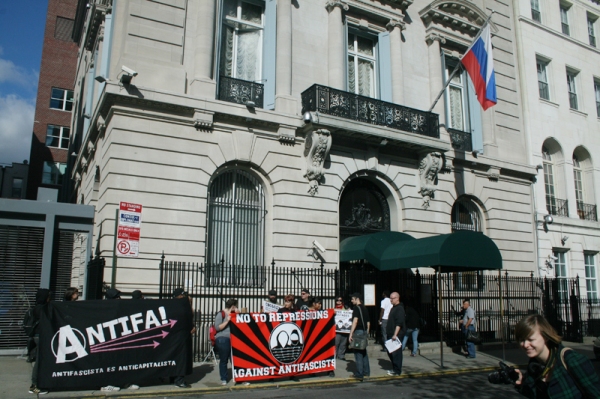Peru: indigenous protesters occupy oil installation
In new protests over the Bloc 192 oil-field in the north Peruvian Amazon, some 20 indigenous Achuar and Kichwa warriors occupied the local air-strip of multinational Pluspetrol.
In new protests over the Bloc 192 oil-field in the north Peruvian Amazon, some 20 indigenous Achuar and Kichwa warriors occupied the local air-strip of multinational Pluspetrol.
Citing a lack of cllarity from Peru's government, traditional leaders of indigenous peoples suspended dialogue in the "consultation" process over oil operations in the Amazon.
Hundreds of Achuar indigenous protesters occupied 16 wells at Peru's biggest oil bloc, halting production to demand better compensation for use of their lands by Pluspetrol.
Highly vulnerable "uncontacted" indigenous bands who recently emerged in the Brazil-Peru border region told neighboring tribes that they were fleeing violent attacks in Peru.
Peru plans to move forward with the controversial expansion of the Camisea gas project in the rainforest of Cuzco region, over the protests of local indigenous peoples.
Achuar indigenous leader Segundo García Sandi began a hunger strike to demand his freedom at a prison in Iquitos, Peru, held on charges of sabotaging an oil pipeline.
Indigenous leaders in Peru’s Amazon protested that a leak from Pluspetrol’s oil operations is causing contamination within the Pacaya Samiria National Reserve.
Ecuador's President Rafael Correa announced that he is abandoning plans for an ambitious internationally funded conservation program at Yasuni National Park in the Amazon.
As Peru’s government continues to stall on implementation of the Prior Consultation Law, indigenous leaders have issued calls for declaration of a “plurinational state.”
Colombia's President Juan Manuel Santos on Día de La Raza issued an official apology to indigenous communities in the Amazon for devastation caused by the rubber boom.
A new report by the UN Office on Drugs and Crime says that Peru has now achieved rough parity with Colombia in coca production, with vast new areas coming under cultivation.

Lizardo Cauper, president of Peru's alliance of Amazonian peoples, AIDESEP, issued an urgent call for authorities to open dialogue with indigenous communities in the northern region of Loreto rather than militarizing the area in response to mounting social conflicts and attacks on the North Peruvian Pipeline. Noting that the aging pipeline is in chronic disrepair, with repeated spills contaminating the rainforest, Cauper said: "We have made a call that, in place of militarization, they put in place a new pipeline. But it is not enough to have a new pipeline, but to respond to the demands of the people who are living around these oil activities." Regional authorities have called upon Lima to declare a state of emergency in response to paralysis of the pipeline, which delivers crude from rainforest oilfields over the Andes. (Photo: Andina)